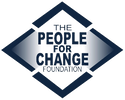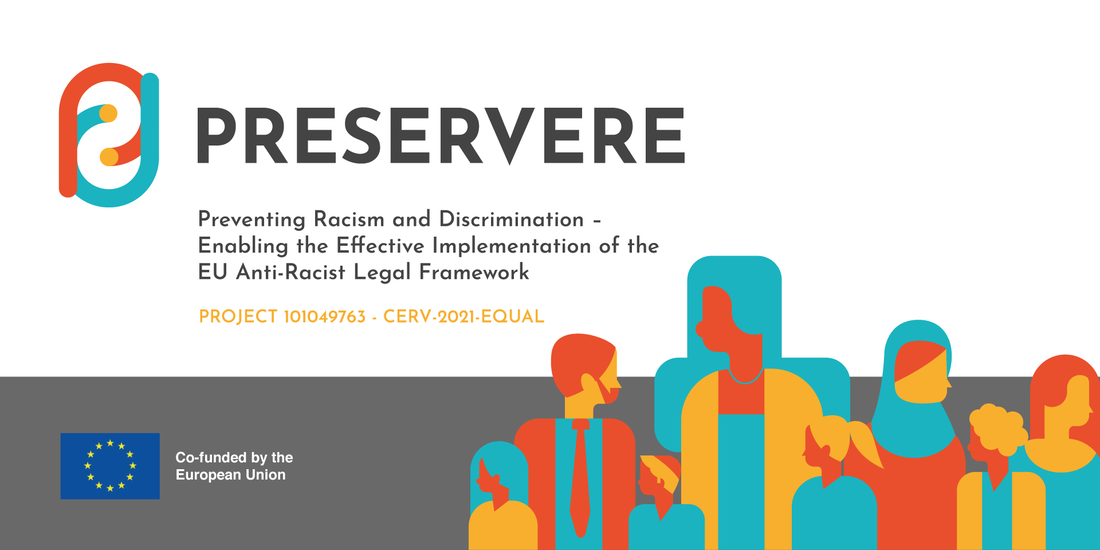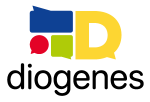Current Projects
The People for Change Foundation is working on a number of projects in the areas of human rights, migration, and trafficking at the moment. To learn more about our projects, please contact us at [email protected].
Preservere: Preventing Racism and Discrimination - Enabling the Effective Implementation of the EU Anti-Racist Legal Framework
|
Preservere proposes actions that prevent and fight racism and xenophobia through a more effective implementation of the European legal framework that has already been transposed in Member States that are part of the partnership: Italy, Cyprus, Netherlands, Greece, Bulgaria and Malta. It focuses, in particular, on professionals who are expected to enforce this framework, but are often unaware of, or unfamiliar with it and, therefore, unable to rely on it in order to protect and empower victimised groups.
|
The EU Anti-Racism Action Plan 2020-25 notes that a system that protects groups vulnerable to racial or ethnic discrimination must, first and foremost, rely on the effective enforcement of the legal framework. While this is available in the EU (primarily in the form of the Racial Equality Directive and the Victims’ Rights Directive), the European Commission has acknowledged that effective implementation of said framework is often lacking. Preservere will address these identified gaps by:
1. Examining how the legal framework has been transposed in the national contexts of project partners. It will question whether the existing legal framework, at both the European and national levels, fits for purpose, or if there are gaps to be filled (by amending and strengthening existing Directives or passing new legislation).
2. Identifying the gaps (and reasons these exist) in the implementation of the law in each partner country.
3. Supporting these researches with better data. The project will explore the extent to which the law is enforced in different partner countries, by collecting and coding data on the number of relevant cases that are reported to the police or equality bodies, the outcomes of their investigations, how many cases reach the Court and their outcomes, including any penalties imposed on the perpetrators.
4. Building on the analysis and data collected, the project will develop educational materials for legal professionals.
The Preservere e-book #1 is out now!
The e-book consists of chapters about the legal framework of six EU Member States. It also includes a chapter on the Racial Equality Directive and Victims' Rights Directive, and a comparative analysis between the different case studies. Click here to download the e-book. You can also download the e-book from Academia.edu.
The Preservere online platform is online now!
The online platform contains materials from the Preservere training sessions for legal professionals, frontline workers, and educators. Click here to visit the website.
The Preservere e-book #2 is out now!
The e-book consists of chapters about the implementation of the Preservere project in the six EU Member States. It includes best practices, methods, and case studies to facilitate trainings and workshops on anti-discrimination and anti-racism. Click here to download the e-book. You can also download the e-book from Academia.edu.
Find out more about the project reading the flyers below:
1. Examining how the legal framework has been transposed in the national contexts of project partners. It will question whether the existing legal framework, at both the European and national levels, fits for purpose, or if there are gaps to be filled (by amending and strengthening existing Directives or passing new legislation).
2. Identifying the gaps (and reasons these exist) in the implementation of the law in each partner country.
3. Supporting these researches with better data. The project will explore the extent to which the law is enforced in different partner countries, by collecting and coding data on the number of relevant cases that are reported to the police or equality bodies, the outcomes of their investigations, how many cases reach the Court and their outcomes, including any penalties imposed on the perpetrators.
4. Building on the analysis and data collected, the project will develop educational materials for legal professionals.
The Preservere e-book #1 is out now!
The e-book consists of chapters about the legal framework of six EU Member States. It also includes a chapter on the Racial Equality Directive and Victims' Rights Directive, and a comparative analysis between the different case studies. Click here to download the e-book. You can also download the e-book from Academia.edu.
The Preservere online platform is online now!
The online platform contains materials from the Preservere training sessions for legal professionals, frontline workers, and educators. Click here to visit the website.
The Preservere e-book #2 is out now!
The e-book consists of chapters about the implementation of the Preservere project in the six EU Member States. It includes best practices, methods, and case studies to facilitate trainings and workshops on anti-discrimination and anti-racism. Click here to download the e-book. You can also download the e-book from Academia.edu.
Find out more about the project reading the flyers below:
|
|
|
| ||||||||||||||||||||||||
DIOGENES: Digital storytelling to foster critical thinking on gender stereotypes
|
The Diogenes project promotes gender equality, non-discrimination, social inclusion and shared values through innovative and integrated approaches. It helps students process information about gender equality by using critical thinking techniques. In doing so, the project responds to the Council of Europe Gender Equality Strategy (2014-2017), which stresses that schools play a fundamental role in destructuring gender stereotypes and promoting gender equality.
|
To achieve these goals, the project is going to develop the following activities:
1. Digital storytelling laboratories to stimulate critical thinking on the issue of gender stereotypes.
2. A training course for teachers on digital storytelling and a set of sensitising videos for peers and parents.
3. A To Do & Not To Do List to help parents understand appropriate and inappropriate behavior or statements towards gender stereotypes.
The Diogenes Project aims to obtain the following results:
1. Updating the teachers’ skills on basic concepts of gender difference and elements of critical thinking.
2. Providing teachers with innovative tools to stimulate critical thinking on gender difference.
3. Empowering teachers to experiment with these techniques within a class and transfer their skills to fellow educators.
4. Promoting school-family alliance models and facilitating students’ active participation processes.
5. Planting a seed for an initial change by pupils on their perceptions of gender difference and for a more critical and aware use of social media.
6. Raising awareness among parents about the most appropriate attitudes to adopt when influencing their children.
The Diogenes project is founded by the European Commission, Erasmus+ Programme, KA220-SCH Cooperation partnerships in school education. It is implemented by The People for Change Foundation in collaboration with a network of partner organisations: Agenfap, Arjantin Ilkokulu, Consorzio Ro.Ma., Don Lorenzo Milani Institute, Raoul Wallenbergskolan Bromma, Szkoła Podstawowa w Jankowie Przygodzkim, The University of Iceland.
Click here to visit the official website of the project.
Click here to find resources on gender stereotypes in education.
1. Digital storytelling laboratories to stimulate critical thinking on the issue of gender stereotypes.
2. A training course for teachers on digital storytelling and a set of sensitising videos for peers and parents.
3. A To Do & Not To Do List to help parents understand appropriate and inappropriate behavior or statements towards gender stereotypes.
The Diogenes Project aims to obtain the following results:
1. Updating the teachers’ skills on basic concepts of gender difference and elements of critical thinking.
2. Providing teachers with innovative tools to stimulate critical thinking on gender difference.
3. Empowering teachers to experiment with these techniques within a class and transfer their skills to fellow educators.
4. Promoting school-family alliance models and facilitating students’ active participation processes.
5. Planting a seed for an initial change by pupils on their perceptions of gender difference and for a more critical and aware use of social media.
6. Raising awareness among parents about the most appropriate attitudes to adopt when influencing their children.
The Diogenes project is founded by the European Commission, Erasmus+ Programme, KA220-SCH Cooperation partnerships in school education. It is implemented by The People for Change Foundation in collaboration with a network of partner organisations: Agenfap, Arjantin Ilkokulu, Consorzio Ro.Ma., Don Lorenzo Milani Institute, Raoul Wallenbergskolan Bromma, Szkoła Podstawowa w Jankowie Przygodzkim, The University of Iceland.
Click here to visit the official website of the project.
Click here to find resources on gender stereotypes in education.



